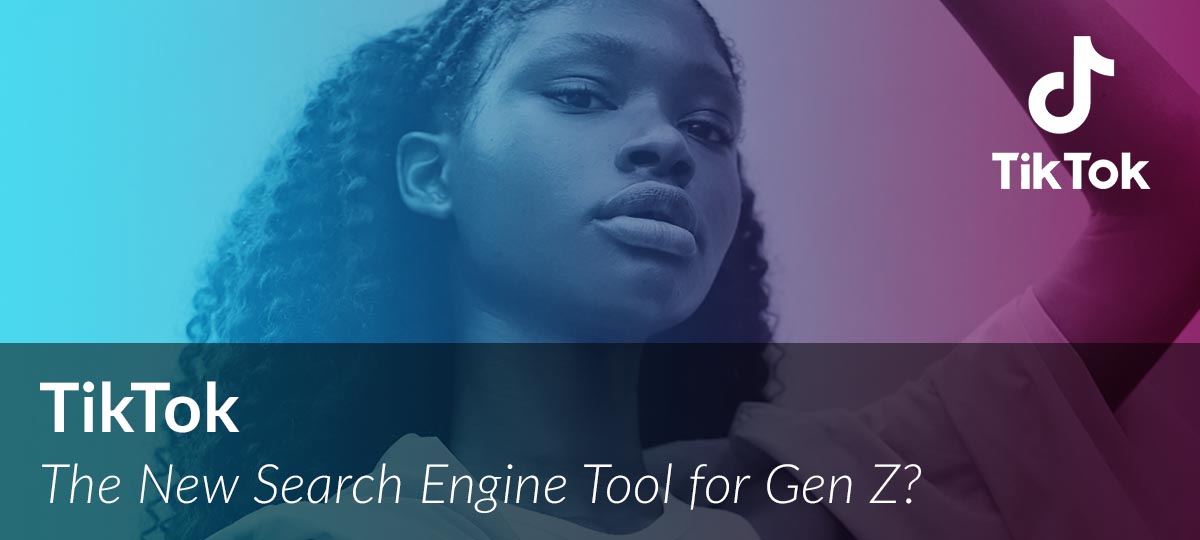
Scroll the FYP (For You Page) of any Gen Z TikTok account and you’ll find an infinite amount of personalised content, from product reviews, dating advice, adverts for multi-pack toilet rolls, and a twenty-something woman inviting us to ‘GRWM’ (Get Ready With Me) for a day in London. It may not be obvious at first, but the reviews, advice, adverts and OOTDs (Outfit of the Day) all have one thing in common: They have been searched by users on the hunt for information.
A new study from the people over at Adobe claims over 64% of Gen Z Americans use TikTok as a search engine, with “nearly 1-in-10 stating they were more likely to rely on TikTok than Google as a search engine.” The study found that 19% of all consumers are looking for new restaurants amongst other content types, with new recipes coming top at 36%. So, where will the average Gen Zer turn to find the best place to eat lunch in London? It isn’t Google.

Compared to other social platforms such as Facebook, X (formally Twitter), Snapchat, and Instagram, TikTok’s rise to fame amongst its competitors has been stratospheric. According to BackLinko.com, TikTok hit 1 billion monthly active users in September 2021, which made the app one of the fastest-growing apps ever in terms of market hold since 2016. However, TikTok’s quick ascension hasn’t come without controversies and legal challenges.
As of writing, the US House of Representatives has voted to force a nationwide ban on the app, unless the Chinese parent company, ByteDance, sell their controlling stake within six months, over fears of national security and data handling. TikTok has also faced scrutiny from the EU, with them launching a formal investigation into potential breaches of the Digital Services Act, including the safeguarding of children. Only time can tell the outcomes of these legal challenges and their wider impact on TikTok’s future and its place in modern society.
None of the legal actions and possible law changes appear to have slowed down the progression of TikTok becoming a tool to search for information and quick answers. TikTok Search now shows users familiar features such as auto-suggest, featured snippets with AI-generated text summarising videos, TikTok traffic analytics for creators and more.
TikTok SEO is not like traditional SEO in its performance. However, there are crossovers in features, methods and techniques. TikTok is unique in the sense that its algorithm relies less on how many followers an account has, and how many views, likes or comments a video has; however, these elements certainly do help push the algorithm. Other indicators are considered more, such as video watch time, video engagement, what your peers are viewing, your previous searches, etc.
For creators such as businesses and brands, this means that quality content is key to getting your videos out there. Even though there are fewer clear ranking factors than other search engines like Google, a TikTok SEO strategy and best practice is invaluable.
With Google now posting TikTok content in the SERPs with featured snippets, as well as Google SGE, we are at the beginning of a search engine revolution, seeking to change completely how we consume information. Alongside legal challenges, TikTok’s biggest threat may be one of its inevitable outcomes: misinformation.
With TikTok search and For You Pages being driven by user engagements, rather than something such as E-E-A-T, there is a glaring question surrounding the future of trusted news sources and reliable sources. All it takes is a small number of accounts to create content suggesting fake news about a celebrity, and the algorithm pushes false headlines, and AI-generated auto-suggest queries, building an avalanche of click-bait lies.
If you looking for advice on reaching a wider audience on TikTok and other social media platforms, then do not hesitate to reach out to our expert team.
Varn is an expert specialist SEO search marketing agency. Technical SEO * AI & Innovation; Data Analytics * Offpage SEO
You need to load content from reCAPTCHA to submit the form. Please note that doing so will share data with third-party providers.
More Information